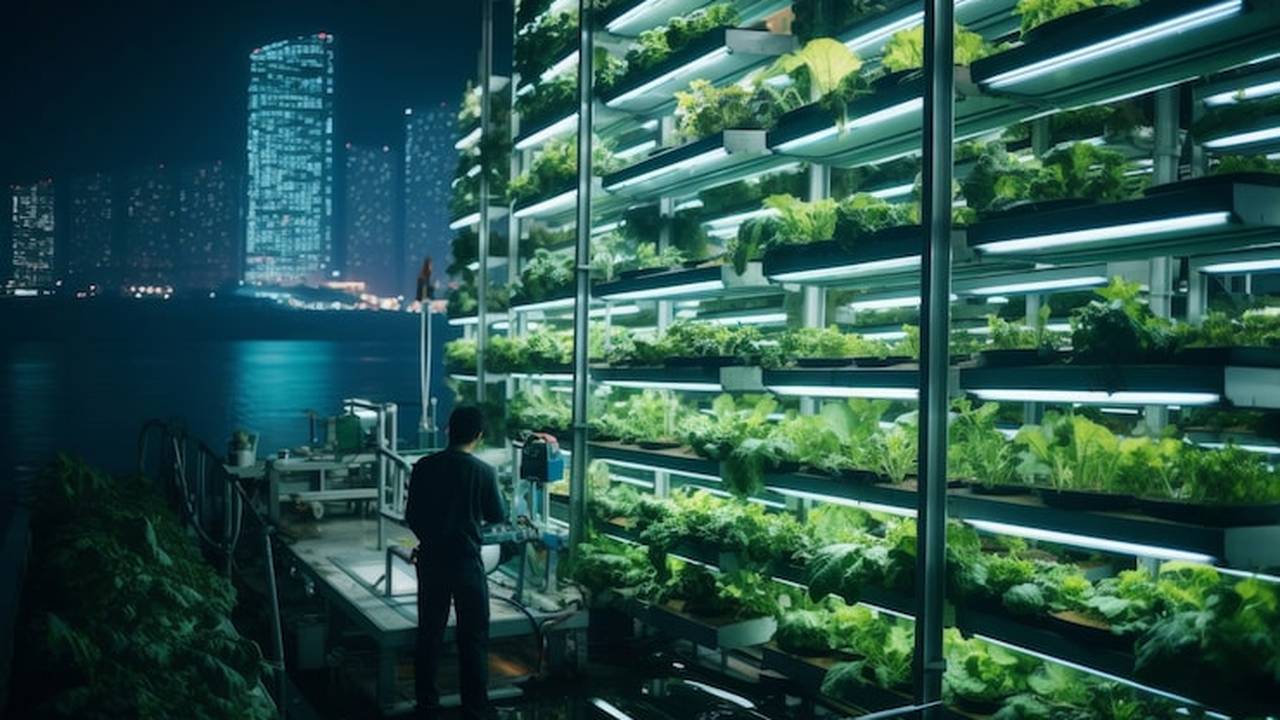 In a dynamic landscape where innovation is key, Tate & Lyle is turning to start-ups to drive health and sustainability advancements. By partnering with Mass Challenge, the UK-based ingredients company aims to enhance product nutrition and explore eco-friendly farming methods. Through this strategic collaboration, Tate & Lyle seeks fresh perspectives to revolutionize its offerings, emphasizing sustainability and health. This move follows its acquisition of CP Kelco, showcasing a commitment to exploring novel avenues. By tapping into the creativity of start-ups, Tate & Lyle anticipates breakthrough solutions that align with its vision for a more sustainable future.
In a dynamic landscape where innovation is key, Tate & Lyle is turning to start-ups to drive health and sustainability advancements. By partnering with Mass Challenge, the UK-based ingredients company aims to enhance product nutrition and explore eco-friendly farming methods. Through this strategic collaboration, Tate & Lyle seeks fresh perspectives to revolutionize its offerings, emphasizing sustainability and health. This move follows its acquisition of CP Kelco, showcasing a commitment to exploring novel avenues. By tapping into the creativity of start-ups, Tate & Lyle anticipates breakthrough solutions that align with its vision for a more sustainable future.
Leveraging Start-Ups for Health and Nutrition Innovations
In the pursuit of enhancing its product offerings, Tate & Lyle has strategically turned to start-ups to drive innovations in health and nutrition. By collaborating with these emerging companies, Tate & Lyle aims to explore alternative sources for nutrients and upcycle waste materials to unlock their nutritional potential. For instance, start-ups are extracting proteins from rice bran to replace eggs in bakery products, showcasing a shift towards sustainable and plant-based alternatives. Moreover, the utilization of artificial intelligence (AI) by start-ups to analyze databases of enzymes and microbes is accelerating research in nutrition, leading to the development of products that induce satiety similar to GLP-1s.
The partnership between Tate & Lyle and start-ups not only fosters creativity but also addresses critical challenges in the food system, particularly in the realm of health and nutrition. By tapping into the innovative approaches of start-ups, Tate & Lyle can advance its offerings by incorporating cutting-edge solutions that align with evolving consumer preferences for healthier and more sustainable food choices. This collaboration not only benefits the company in terms of product development but also provides start-ups with the resources needed to thrive in a competitive market environment, creating a mutually beneficial ecosystem for innovation in the food industry.
Driving Sustainable Production through Collaboration
In parallel to advancements in health and nutrition, Tate & Lyle is also leveraging start-ups to drive innovations in sustainable production practices. Start-ups within this domain are focusing on decarbonization efforts within the food industry, aligning with the broader goal of reducing environmental impact. For example, initiatives aimed at optimizing industry processes, logistics, and waste reutilization are gaining traction, with start-ups exploring sustainable cooling methods and solutions to minimize greenhouse gas emissions from compressed air leakages. By collaborating with these start-ups, Tate & Lyle can enhance its sustainability initiatives by incorporating innovative technologies that improve resource efficiency and reduce environmental footprint throughout the production process.
The utilization of side streams, such as beet leaves, carrot tops, and even CO2, underscores the commitment of both Tate & Lyle and start-ups towards maximizing resource utilization and minimizing waste in production. By exploring unconventional sources of waste and employing biotech precision fermentation techniques, start-ups are unlocking new opportunities for sustainable production within the food industry. Through strategic partnerships with these innovative start-ups, Tate & Lyle can not only optimize its own waste streams but also contribute to the broader industry goal of achieving a more sustainable and environmentally conscious approach to food production.
Embracing Collaborative Innovation for a Sustainable Future
The collaboration between Tate & Lyle and start-ups represents a significant shift towards embracing collaborative innovation as a driver for sustainability and growth in the food industry. By engaging with start-ups through platforms like Mass Challenge, Tate & Lyle is not only fostering a culture of open innovation but also gaining access to diverse perspectives and expertise that can catalyze transformative change within the company. This strategic approach enables Tate & Lyle to stay at the forefront of sustainability trends and technological advancements, positioning itself as a leader in driving positive environmental and social impact through its operations and product offerings.
As start-ups continue to play a pivotal role in driving innovation and sustainability within the food industry, collaborations with established companies like Tate & Lyle are essential for fostering a culture of continuous improvement and adaptation to evolving market demands. By embracing the creativity and agility of start-ups, Tate & Lyle can not only enhance its competitive edge but also contribute to the collective effort towards building a more sustainable and resilient food ecosystem. This collaborative approach underscores the importance of cross-sector partnerships in driving meaningful change and creating a more sustainable future for the food industry and beyond.
Conclusion
In a strategic move towards innovation and sustainability, Tate & Lyle 's collaboration with start-ups through Mass Challenge signifies a transformative shift in the food industry. By leveraging the creativity and expertise of emerging companies, Tate & Lyle is not only enhancing its product offerings in health, nutrition, and sustainable production but also driving positive environmental and social impact. This partnership highlights the power of collaborative innovation in shaping a more resilient and sustainable future for the food industry, emphasizing the importance of cross-sector partnerships in driving meaningful change. As Tate & Lyle pioneers this approach, it sets a compelling example for the industry, showcasing the potential for driving growth while prioritizing sustainability and ethical practices.